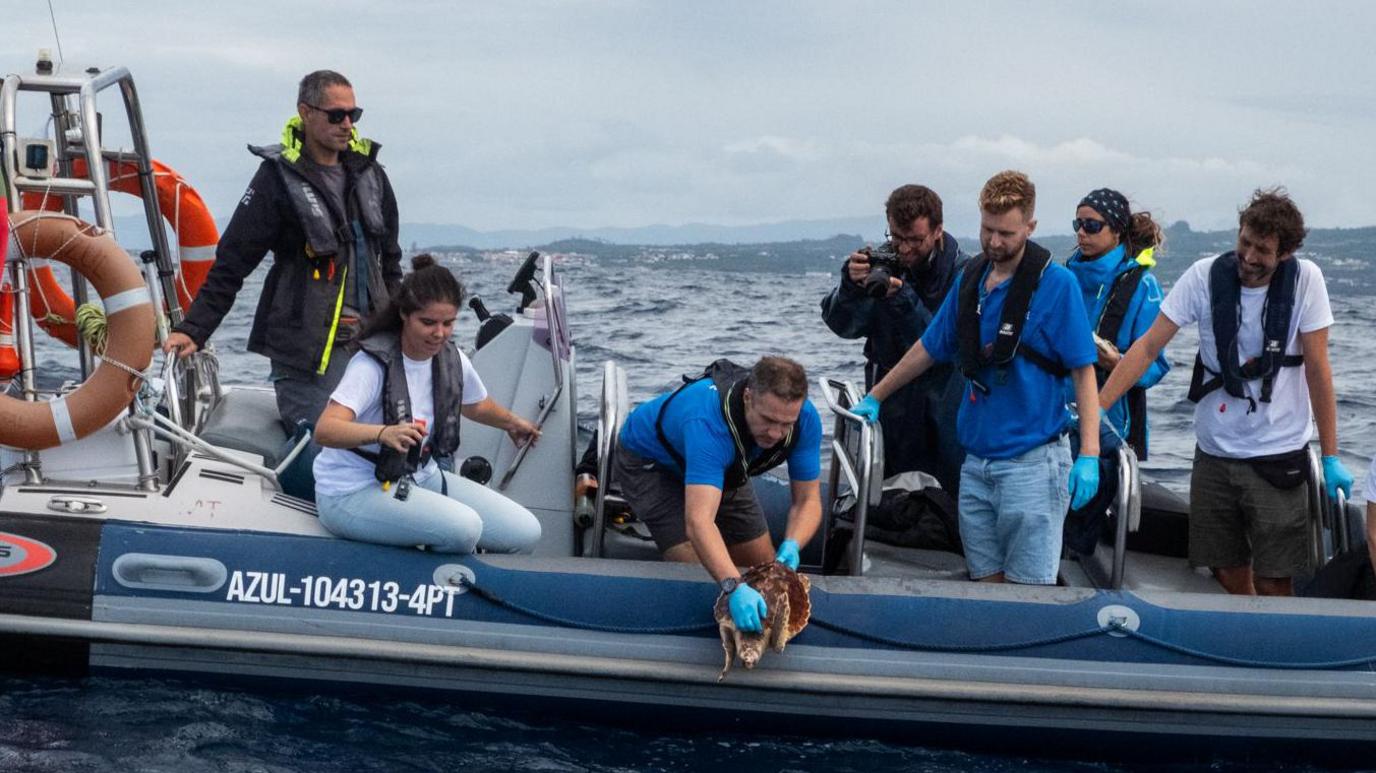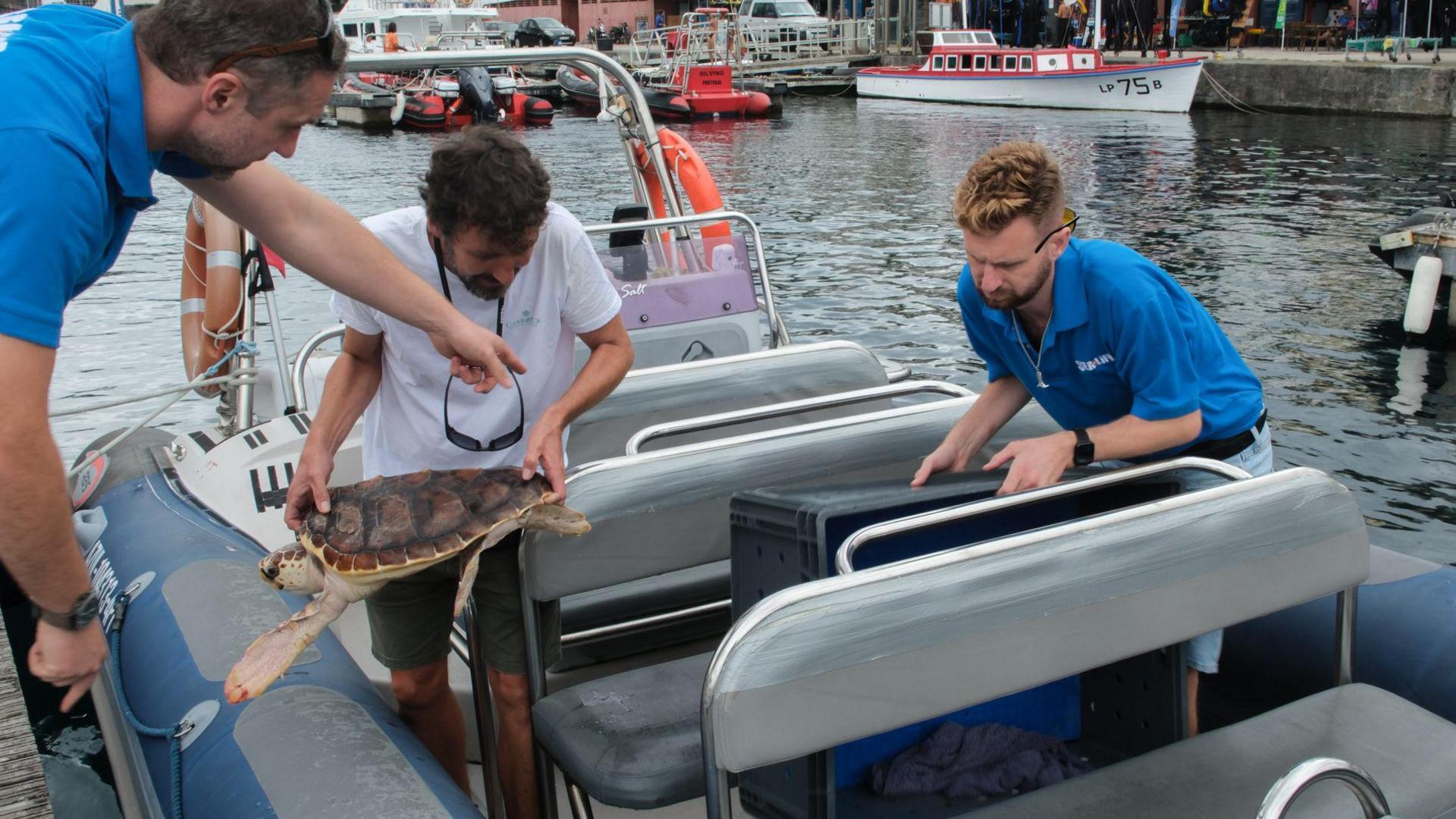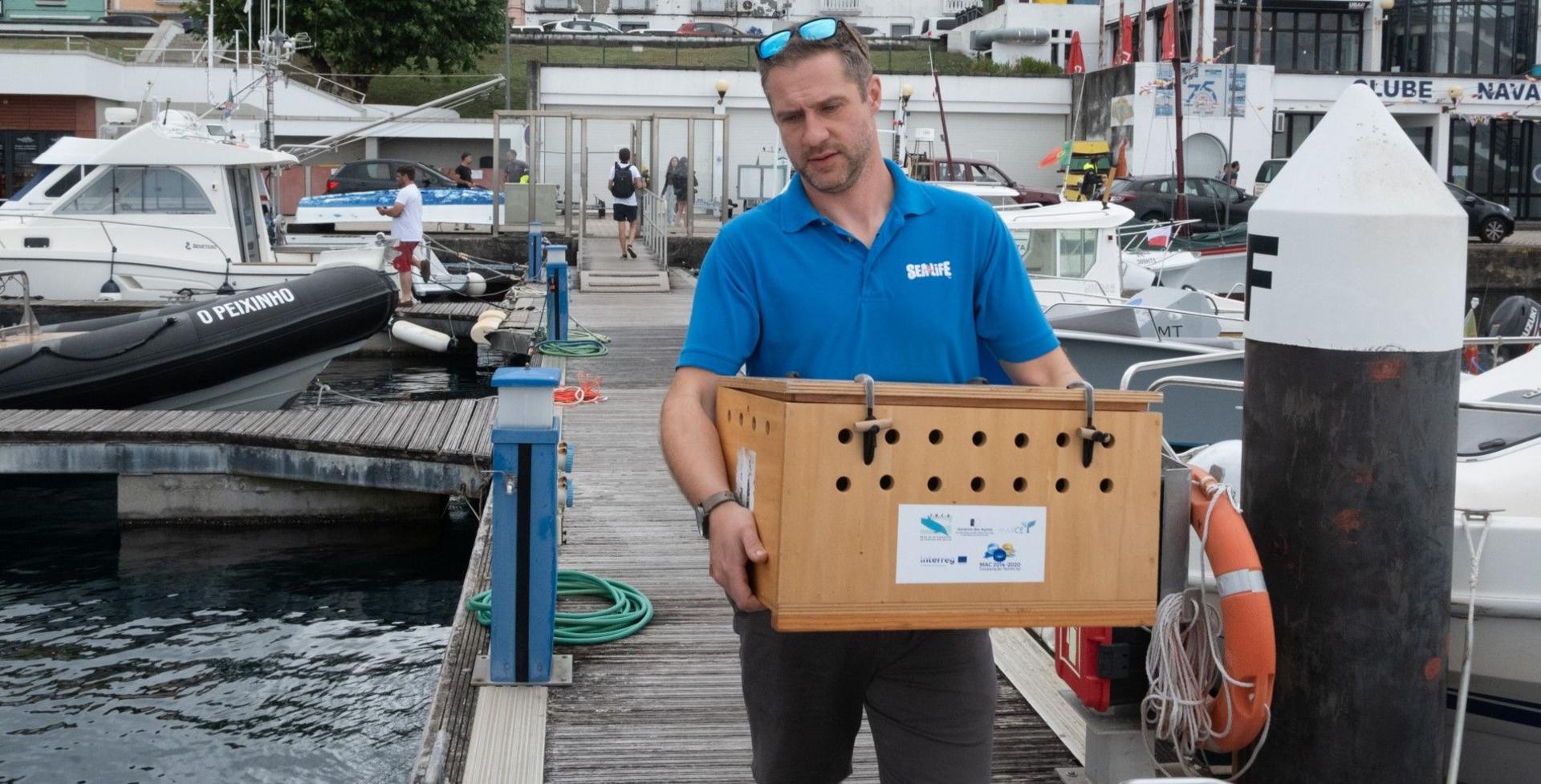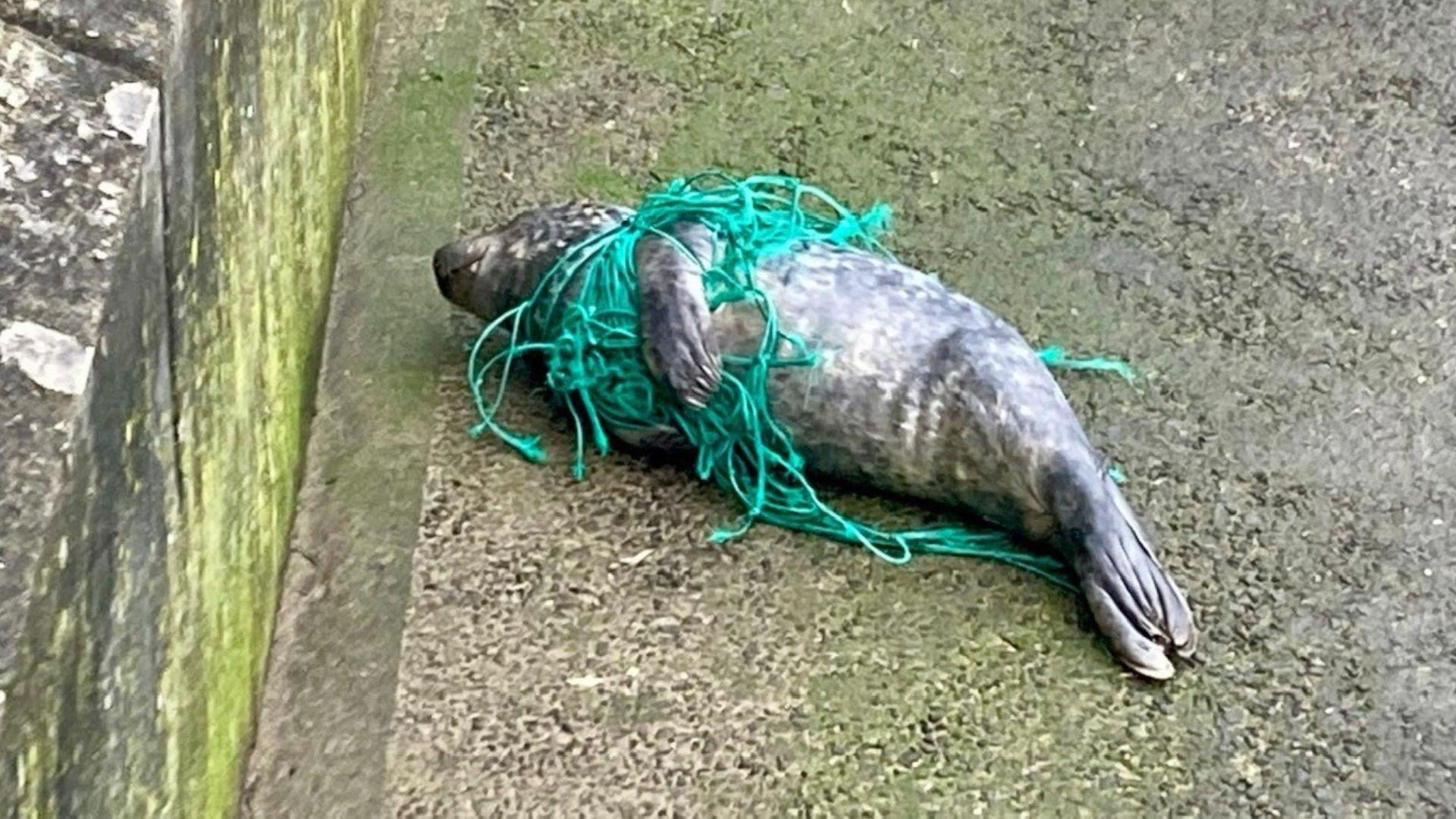Turtle cared for in Yorkshire returned to the wild

Tarquin the loggerhead turtle was released back into the wild in Portugal
- Published
A washed up sea turtle that was nursed back to health at a North Yorkshire aquarium has been returned to the wild.
Tarquin, a juvenile loggerhead turtle, was found on Blackpool Beach in November in poor health and "cold-stunned" - a potentially life-threatening condition caused by sudden exposure to cold temperatures.
The turtle was taken to SEA LIFE Scarborough for extensive rehabilitation and was recently released in the Azores in Portugal after a clean bill of health.
Todd German, curator at the aquarium, said it was "elating" to watch Tarquin return to the open ocean.
"It's an amazing feeling and a culmination of lots of different organisations coming together for this animal," he said.
Loggerhead turtles are more commonly found in subtropical or temperate environments, including the Atlantic and Pacific Oceans and Mediterranean Sea.
They are better suited to warmer waters and can experience cold-stunning when they enter a patch of water where the temperature rapidly drops.
They can then enter a stage similar to hibernation, causing them to be washed ashore, Mr German explained.
Once a turtle becomes cold-stunned, there is only a small window in which it can safely be rescued.

Tarquin was transported to the Azores after rehabilitation
"Around the UK every year we'll get about a dozen sea turtles wash up, but most of those are dead," he said.
"Most people will just stumble across them on a beach and think they're a rock because they're so dormant."
The process took around eight months of rehabilitation and paperwork for the SEA LIFE team in order to be granted permission to release the turtle in Portugal.
Working closely with organisations including Flying Sharks, which specialises in marine live animal collections and transport, Tarquin was flown to the Azores.
The turtle spent several weeks acclimatising at Porto Pim Aquarium before being released alongside another turtle found in the UK.

The turtles spent time at Porto Pim Aquarium to acclimatise
Mr German described the moment that Tarquin entered the water as "bittersweet".
"You do everything you can do to ensure that the turtle is going back into the sea in the best condition, but we have no influence what happens to that turtle after it leaves us," he said.
SEA LIFE Scarborough has previously rehabilitated and released three other sea turtles and numerous seals.
"It really is an immense privilege and I don't think that feeling ever diminishes," he added.
Get in touch
Tell us which stories we should cover in Yorkshire
Listen to highlights from North Yorkshire on BBC Sounds, catch up with the latest episode of Look North.
Related topics
Similar stories
- Published31 January

- Published28 November 2024
